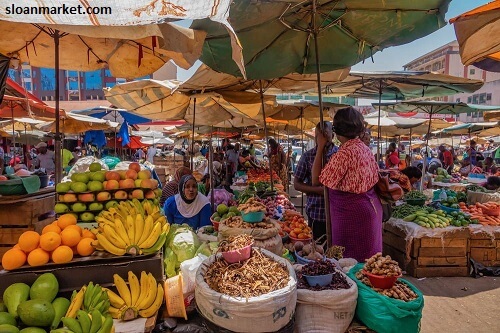The African Market: Opportunities and Challenges in a Rapidly Growing Economy:
African Market:
Rapid population growth, urbanization, rising incomes, and greater connectivity are all contributing to the African market’s growing importance in the global economy. With over 1.4 billion people and a rising middle class, Africa has created great potential for businesses and investors.
However, the African market faces numerous challenges, including political instability, infrastructure shortages, and regulatory complexity. This article builds an understanding of the African market’s basic dynamics, including which sectors will most likely reveal potential and which difficulties must be addressed to fully unlock this continent.
Key Growth Drivers for the African Market:
African Market:
1. Demographic Boom:
The African market is one of the best because of its young and rapidly growing population. Africa has the world’s fastest-growing population, estimated to reach 2.5 billion by 2050. Over 60% of the African population is under the age of 25. This depicts the world’s youngest continent. This demographic dividend will raise demand, produce a large labor force, and increase the continent’s economic vitality.
Africa’s young customers are becoming more connected and technologically savvy as more individuals acquire access to the Internet and mobile phones. As the population ages, so do the demands for education, health care, technology, and so on, resulting in a massive consumer market that corporations may exploit.
2. Urbanization and Increasing Incomes:
Urbanization is driving significant changes in the African market. Urbanization has dramatically shaped the African continent over the last few decades, with cities such as Lagos in Nigeria, Nairobi in Kenya, and Johannesburg in South Africa emerging as economic hubs. Cities’ expansion has increased consumption while also serving as the foundation for consistent economic growth.
With rising earnings and an expanding middle class, there is increased demand for consumer products, real estate, financial services, and infrastructure. The African Development Bank estimates that approximately 300 million Africans are in the middle class, a figure that is expected to expand over time. In general, rising affluent consumers will seek higher-quality products, giving shops, communications companies, and automakers hope.
3. Technology and Connectivity:
Africa has done very well in the past few decades in terms of embracing technology and connectivity. Expansion in mobile phone and internet access has revolutionized how business is conducted on the continent, particularly in banking, e-commerce, and education. Mobile money services led by M-Pesa in Kenya revolutionized financial transactions for millions of unbanked people globally with access to financial services.
African Market:
This digital revolution is also opening opportunities for businesses to reach consumers in previously under-served areas, lowering transaction costs and improving efficiency. Thriving start-ups and tech companies like fintech, agrotech, and health-tech players are mainly concentrated on innovation in Africa’s major cities.

Potential Key Sectors:
1. Agriculture:
Agricultural sectors are indeed the backbones of most African economies, greatly contributing to GDP while utilizing an extensive percentage of the population. This continent has a vast arable land, and it is well positioned to become a major contributor to the global food production processes. Unfortunately, it is still in its underdevelopment phases with low productivity as well as limited access to advanced farming technologies.
Modernizing agriculture through upgraded irrigation systems, mechanization, and access to finance can improve the situation of food security and export levels for Africa. A significant investment opportunity exists in the value chain of agriculture in agribusiness and food processing and logistics.
2. Energy:
With growing population and urbanization, Africa’s energy demand is on an all-time rise; however, today, much of the continent remains in darkness due to a lack of dependable access to electricity. Energy could present a gigantic scope, particularly in the renewables segments-solar, wind, and hydropower.
Several African countries are heavily investing in the upgrading of energy:
African Market:
infrastructures. These investments push for new energy production to cater to domestic markets; besides these, many position themselves as soon-to-be energy exporters. This sector has attracted foreign investments with Morocco spearheading Solar and South Africa taking the lead for Wind.
Africa’s infrastructure deficit is quite well known but an enormous opportunity. The continent needs huge investments in transport, power and water, and telecommunications infrastructures to support the growth of economies across the continent. “Africa requires investment in the tune of $130 billion annually to close its infrastructure financing gap,” claims the African Development Bank.
Public-private partnerships (PPPs) are increasingly on the rise in Africa as governments seek to attract private investment to bridge such gaps. Infrastructure development would not only enhance the business environment but also unlock all of the economies’ economic potential by connecting people and markets more effectively.
Challenges in the African Market:
African Market:
The African market still holds a lot of potential, yet it also poses many challenges to investors and businesses.
1. Political instability :
Political instability is another major risk for most African countries. Conflicts, civil unrest, and weak governance can disrupt businesses, deter investments, and affect growth negatively. Investors will have to evaluate the risk environment in the political area and prepare for possible volatility.
2. Regulatory Complexity:
There’s often confusion and inconsistency in the regulatory environment in Africa. Regulations are different from one country to another, and the bureaucracy can be not only slow but also expensive. Corruption and a lack of transparency are generally part of the machine in other regions as well.
3. Infrastructure Deficit:
While infrastructure is a source of investment opportunities, the deficit that currently exists equally challenges businesses in their operations in Africa. Bad roads, erratic electricity, and little availability of clean water increase the costs of operation and offer limited opportunities for expansion for a business.